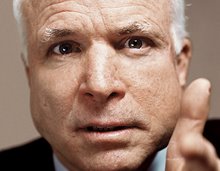Presidential pardons and clemencies are vastly underused, and that is a shame. (As Cato’s Gene Healy has observed, “[A]long with the veto, the pardon seems to be the rare executive power that [George W. Bush] is reluctant to use.”)
Happily, the Scooter Libby case presents an opportunity to reverse course.
Special prosecutor Patrick Fitzgerald was appointed to probe the alleged leak of the name of CIA officer Valerie Plame Wilson. His investigation yielded no indictments, but he charged Libby for perjury in testimony to a grand jury.
To believe that Libby lied is, essentially, to believe NBC’s Tim Russert, who said he learned of Plame from Libby. Libby says otherwise.
Yet even Russert is guilty of a flawed memory—not dishonesty, just poor recollection. For one, he denied calling a reporter to complain about a story, then apologized when shown the evidence of a call he had simply forgotten.
Similarly, the Washington Post’s Walter Pincus testified that former White House press secretary Ari Fleischer had told him about Plame. Fleischer testified to the contrary.
Neither person is necessarily lying; it’s just that the human memory of such seemingly trivial details is fragile and complex. Ask two eye-witnesses about the same thing they both saw, and you’ll invariably get slightly different stories.
Prosecuting someone for a memory lapse—when even the memory of the key witness (Russert) is in question—constitutes overreaching. Finding that person guilty for same is a mistake. Pardoning him is a necessary corrective. President Bush should do so now.
skip to main |
skip to sidebar
Citizens United Political Victory Fund
Recent Posts
Labels
- 2008 (14)
- McCain (10)
- The Daily Dose (6)
- Rudy (5)
- Fred Thompson (4)
- In the News (4)
- Earmarks (3)
- Immigration (3)
- FEC (2)
- Hillary (2)
- Media (2)
- Newt (2)
- Sandy Berger (2)
- Scooter Libby (2)
- Transparency (2)
- Chuck Hagel (1)
- Energy (1)
- Huckabee (1)
- Lobbying (1)
- New Media (1)
- Obama (1)
- Romney (1)
- School Choice (1)
- Second Amendment (1)
- Unions (1)
Archives
1006 Pennsylvania Avenue, SE • Washington, DC 20003
Phone: (202) 547-5420 • Fax: (202) 547-5421


